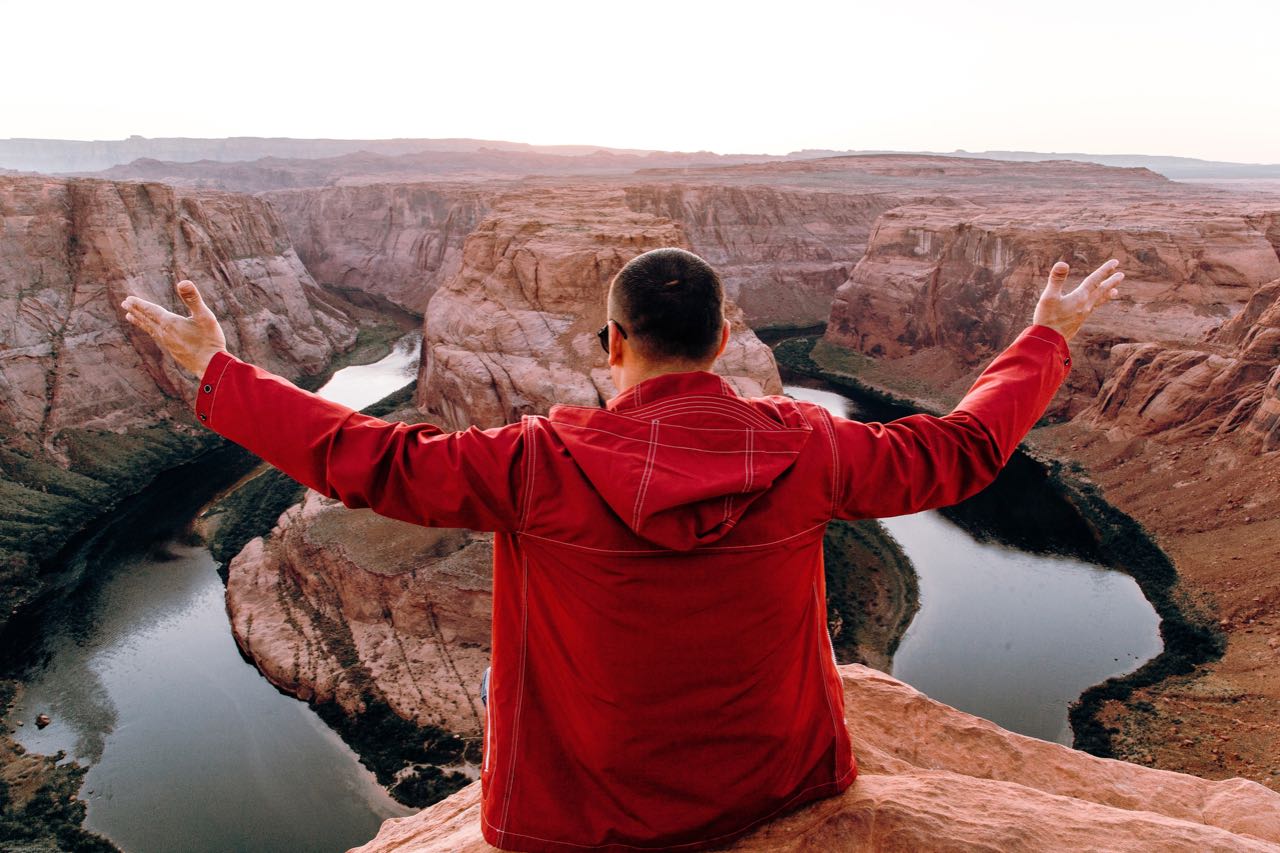Stretch Your Heart to Feel >1 Emotion: You Won’t Regret It

To listen to an audio reading of this post, click here or go to bit.ly/MoreThanOneEmotionAudio
.
When we achieve the mark of mature intelligence… we can hold in the mind two opposing thoughts without undermining either one of them. So the inescapable uncertainty of human life is accepted as our destiny from which we do not flee. — Rollo May
It happens all the time in my therapy room:
People fear that if they examine parents’ actions or words that had a painful impact on them in childhood, and if they discover they feel anger or grief or hurt toward these beloved parents, then it’ll mean they no longer love the people who gave them life.
Of course, that belief causes them to be mired in a stasis of either/or. I understand that.
There’s no way to move, no way to grow, if it feels like you’re required EITHER to love and appreciate your parents, OR to admit their flaws and therefore feel anger or grief. That’s an unsolvable dilemma for many people.
But, in fact, that dilemma is patently unreal.
We’re taught a simplistic model of emotion in our culture. We’re taught that we can feel only ONE emotion at a time.
So we fear that gratitude will eradicate grief, that anger will obliterate love.
That’s. Simply. Not. True.
Emotions are more richly textured that that.
I know from working with countless therapy clients and from my own experience that hearts have the capacity to stretch to feel many emotions at once.
We can simultaneously feel:
- Anger AND love toward the same person.
- Grief about an enormous loss AND gratitude for the life we had and still have.
- Furious with our dog for eating an entire package of Oreos in under two minutes AND proud that he was smart and quick enough to get away with it.
- Afraid of letting our kid ride his bike around the block for the first time AND excited that he’s adventurous and ready.
- And more…
***
When my first husband died in 1992, I didn’t care if I lived or died on my own behalf. At the same time, when I looked at my then-11-month-old child, I passionately wanted to live no matter what it cost me.
I distinctly remember a moment in my therapist’s office a couple of years after that loss when I swung wildly from yelling with hatred toward life’s injustice and fury that I was left behind, to tearing up with awe at the intensity of life-force that flowed through my body in anger and with gratitude for being alive to experience it all.
My therapist’s ability to sit with me, unflinching, through the waves of all this fierce emotion — to simply ride it out with me and help me feel “not crazy” — allowed me to pause in the big middle of it all to perceive an actual sensation in my chest. It was kind of painful, but not in a bad way.
I described the sensation to my therapist: It’s like pressure almost. Like pressure side to side.
She simply said: I think your heart is stretching to hold all of this at once.
And she was right.
My heart stretched to hold every last ounce of 100 gallons of emotion, in that room, at that moment, all at once.
More awe and gratitude at this miraculous experience widened my chest even more.
And I was never the same.
Because you know what?
Once your heart stretches like that? It never shrinks back to “normal.”
Because it’s normal for our hearts to grow and expand and feel many emotions at once. We’re built for that. You get used to it after a while, and you realize that the full-heart feeling is a feeling of aliveness, of a passionate love of life, of not holding back one cell of your body from being fully engaged with the moment.
Neither I nor any of my clients have ever regretted letting life flow through us like that.
A stretched-open heart is a supple and strong and enlivened heart, even if it’s a broken heart.
***
Not every heart-stretching moment is as big as the one I described, and heartbreak isn’t the only situation that generates simultaneous yet different feelings.
I encourage you to notice small and large moments where you catch yourself feeling more than one thing at a time, or where you discern that you’re turning away from a feeling because you’re afraid it’ll eradicate another emotion that’s important to you.
Pause and see if you can let both of the emotions be there at the same time.
Let your heart be stretched. Wide.
Then tell me about it in the comments or in an email reply…

